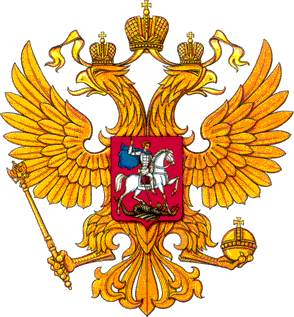Russian History:
A Brief Summary

Situated on the great
Eurasian plane, Russia has been vulnerable to invasions from both East
and West (Mongols, 13-14th cent.;
French, 1812; Germans, 1941) but was also well-placed to expand
laterally, once a centralized autocratic state emerged under the grand
princes of Moscow (15-16th
cent.). Today Russia spans the entire northern part of the Eurasian
continent.
Adoption of Orthodox
Christianity from Byzantium (988?) brought Russia into the fold of
Christian Europe and at the same time set it apart from the Roman
Catholic West. Therein lies the beginning of Russia’s ambivalence
toward the West and the recurrent belief in the country’s special
destiny as the bearer of true faith, whether Orthodox Christianity,
Slavic commonwealth, or Communism.
With its persistent
mediaeval legacy and barely touched by the Renaissance and Reformation,
Russia emerges on the world stage only under Peter the Great
(1682-1725). He established a lasting pattern for meeting the challenge
of the West: selective adoption of modern Western institutions in war,
industry, science, and education without diminishing the centralized
state and its power of confiscatory taxation.
Where the reforms were
successful, achievements over the last two centuries have been
spectacular: literature (Tolstoy, Dostoevsky), music (Chaikovsky,
Shostakovich), art (Malevich), theater and ballet (Stanislavsky,
Diaghilev), film (Eisenstein), science (Mendeleev, Pavlov), weapons and
space technology (Sputnik). Russia became a military superpower when it
defeated Napoleon (1812-14) and remains one to this day. But serfdom was
abolished only in 1861, land ownership is still unresolved, and historic
grievances in the empire’s borderlands to this day threaten the
integrity of the state.
Profound antagonism
between modernizing trends and concentration of power at the top — be
it a tsar or a communist dictatorship (1917-1991) — has produced an
unstable polity. Periods of extreme repression (notably under Stalin)
have alternated with episodes of exuberant liberation, followed by
reforms, in turn, undermined by renewed centralization and repression.
Emancipated from communism
and the Soviet Union (1986-1991), Russia is struggling to institute a
federal democracy and a market economy while its foreign policy is
oriented to a partnership with the West.
Copyright © 1999 by Gregory
Freidin
![]()